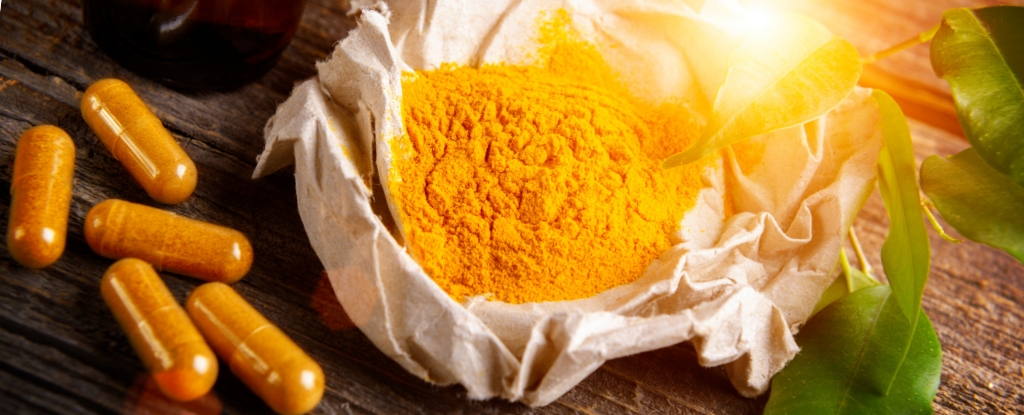
Posted on 08/07/2024 9:12:06 AM PDT by Red Badger

From turmeric to green tea, many botanicals we commonly use as herbal remedies pose a threat to our liver if we indulge too much.
A new survey from the University of Michigan estimates up to 18.6 million people in the US make use of at least one of these herbal remedies with liver-damaging potential.
When used in moderation, herbs like green tea and other plant-based supplements can provide us with benefits. In concentrated forms, such as capsules, it's easier to overdose on them. Hospitalizations due to herbally-induced liver problems are increasing globally.
"The safety and efficacy of herbal and dietary supplements are not well established due to the lack of regulatory requirements by the US Food and Drug Administration for human pharmacokinetic or prospective clinical trials prior to marketing," hepatologist Alisa Likhitsup and colleagues warn in their paper.
Using data on 9,685 people enrolled in the US National Health and Nutrition Examination Survey (NHANES), the researchers found the six most commonly consumed herbal products are typically used to treat conditions such as high cholesterol, depression, and pain, and are also often implicated in livery injury.
Rates of drug induced liver injury from these supplements nearly tripled around 20 years ago, from 7 percent in 2004 to 20 percent by 2014.
"The most commonly implicated botanical products … include turmeric, kratom, green tea extract, and Garcinia cambogia, with potentially severe and even fatal liver injury," Likhitsup and team explain.
Liver injury can be hard to diagnose until it becomes severe. Symptoms include feeling tired, having a low appetite and losing weight. Critical damage prevents the liver from processing red-orange bilirubin properly, leading to a buildup that is visible in the skin as a yellow hue.
Use of herbal supplements is more common in people with chronic medical conditions including arthritis and diabetes, the researchers found. These people also tend to be older and have higher levels of education and incomes than those who don't use these supplements.
"Turmeric-containing products were most commonly used for joint health or arthritis due to the widespread belief that turmeric may have antioxidant and anti-inflammatory properties," Likhitsup and colleagues write. "However, multiple randomized clinical trials have failed to demonstrate any efficacy of turmeric-containing products in osteoarthritis."
It's the same for the other supplements. Despite a lot of media attention, clinical research has found the small South Asian fruit Garcinia cambogia has no significant impact on weight, nor does green tea extract.
What's more, spectroscopic analysis in a 2019 study revealed what is advertised on the label of these herbal supplements does not always match their actual contents.
In general it is safest to obtain suitable amounts of nutrients through a healthy diet, and only use supplements when recommended as treatment for a diagnosed deficiency.
However, if you do decide to try herbal supplements it is critical to keep your doctor informed, so that if anything does go wrong they know how to help.
This research has been published in JAMA Network Open.
What is wrong with Tylenol?
This study doesn’t establish maximum safe dosages or what dosages are associated with liver damage, but only says that sometimes these nutrients are associated with liver damage. Mostly, presented this way, it is just a big pharma support piece. One of the compounds targeted is Tumeric, and it is almost impossible to find a reference for what the toxicity of Tumeric is, generally, the recommendations run 500mg to 2000mg of 95% Curcumin extract, which is one whopping amount of Tumeric as a spice. Nevertheless, most Curcumin or Tumeric just slides right through you unabsorbed. This is why they add Paprin (black pepper) to the mix, to get it past the gut. And then it flushes out of your system quickly.. so hard to know what to make of this study. Some of the items on this list are just plain bad, incontrovertibly. Garcinia cambogia for one.. just avoid it. But, this is kind of just bad talking and grouping things without any real information to give the people who are interested real tools to find their own safe dosages.
Who paid for the study?
Water will kill you if you drink too much.
Ban Dihydrogen Monoxide!
Same here. Keep my net carbs under 120 daily and I have made great improvement. Just cannot go full keto. I can stick with low carb. Have a shot of bourbon or a glass of wine most evenings. Enjoying life!
Ibuprofen (Advil) kills the kidneys.
While this is no doubt true, ANYTHING in excessive amounts can be a problem.
Seems to me this is just another tactic to impose more governmental control over something big pharma is losing money because of.
How many people risk heart damage from “safe and effective” mRNA injections?
The FDA has wanted to control these forever..............
They have in the past, but on a money maker like acetaminophen, NOT going to happen.
Not me!
I got mine the old fashioned way!
Too many carbs!.......................
Do the research...
Americans don’t really seem to understand the concept of “moderation.” If 1x something is good for me, then 25X will be great for me.
He’s right. I was eaten by a crocodile once and barely noticed it.
Self-medicating yourself with anything, and adding supplements you have no idea you actually need, are useless, and can do more harm than good, especially if you don’t have fasting bloodwork done at least every six months to make sure you’re not over-medicating, or over-supplementing your system. Too much of a substance is as bad as not enough. Too much potassium versus too little can both cause cardiac arrest.
It’s that monoxide stuff that will put you in the ground. LOL
Disclaimer: Opinions posted on Free Republic are those of the individual posters and do not necessarily represent the opinion of Free Republic or its management. All materials posted herein are protected by copyright law and the exemption for fair use of copyrighted works.